News & Information
Filmmakers carry out cleaning activities in Harajuku’s Omotesando. They also went to worship at Meiji Shrine! June 14th, at Laforet venue.
Hello. I’m Tamami Inoue, a volunteer film festival writer. On the 14th, a slightly cloudy Thursday, “Sweepers,” the time-honored practice of cleaning, was held for the Short Shorts Film Festival & Asia in Harajuku and Omotesando. The project is held every year with the cooperation of the NPO Green Bird, and Tetsuya Bessho, the Film Festival representative, LiLiCo, the Festival Ambassador, and directors and producers visiting Japan took part. They picked up garbage while walking between Harajuku and Omotesando.
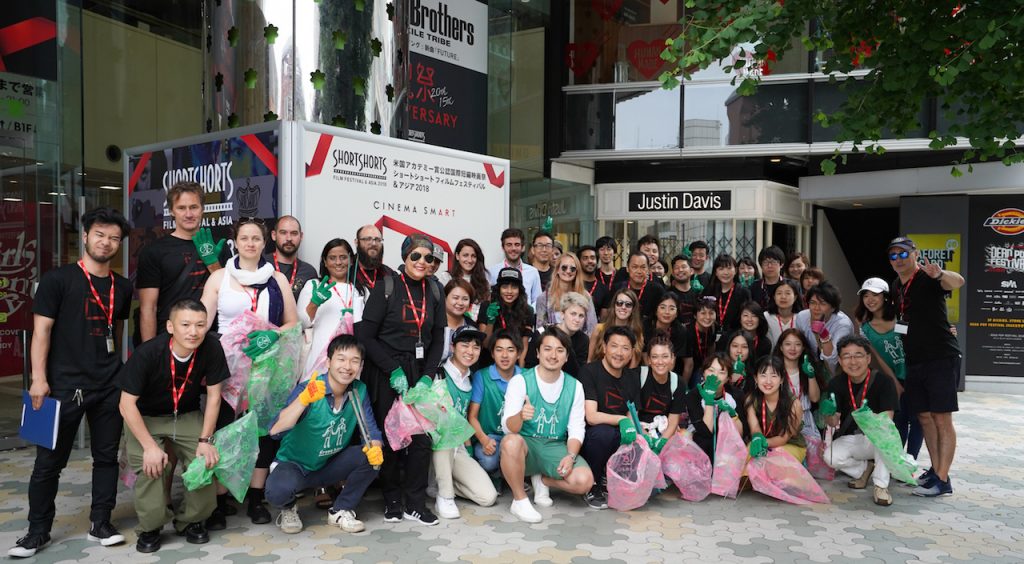

Green bird is a project which started in Harajuku’s Omotesando with the concept “Clean cities purify people’s hearts too,” in which Ken Hasebe, the current head of Shibuya Ward, plays a central role. The details of its main activities are “City cleaning,” and, with the slogans “Making the city dirty isn’t cool,” and “KEEP CLEAN, KEEP GREEN,” the reach of their activities currently extends not only throughout Japan, but also throughout the world.
We met on this day just after 10am at Laforet Harajuku. After receiving long tongs for picking up garbage, green cotton gloves, and pink burnable and green non-burnable garbage bags, we began with “Let’s pick up garbage!” and plenty of enthusiasm. While we thought “Huh? There’s nothing noticeable,” when we looked in the hedges, we discovered small pieces of trash including scraps of paper and cigarette butts. Everyone looked almost happy to find garbage. We picked up the small pieces of garbage with our tongs, and happily put them into their bags.
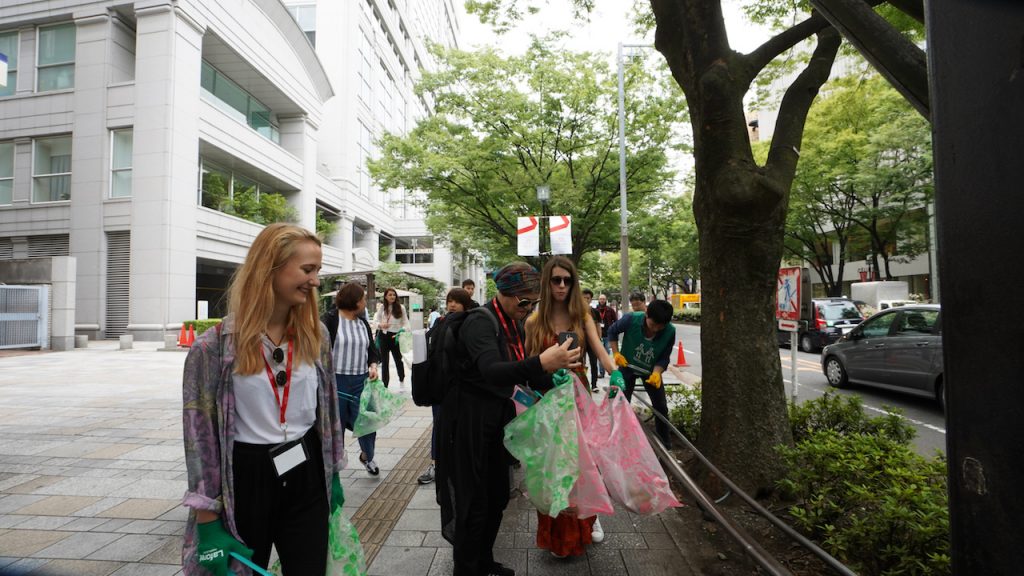
We could also see the participants similing at each other and saying things like “I’m putting this non-burnable garbage into your green bag, ok?” and “Thanks” while they exchanged the garbage they had picked up. When they found relative large pieces of garbage such as plastic bags, beer cans, and plastic drink cups, and lots of cigarette butts thrown out together, filmmakers from various countries said things like “Wow, I found some! Great!”, rushing over to them happily and picking them all up together, looking more like they were hunting for treasure than picking up garbage. Everyone really enjoyed cleaning.
In addition, Bessho and LiLiCo were especially enthusiastic in looking for garbage, and seeing them take the lead in picking it up was also very impressive. Equipped with gear including matching black film festival t-shirts, green cotton gloves, and colorful garbage bags, picking up garbage as we walked on the main street lined with fashionable shops while laughing with people from various countries was a really enjoyable activity, and was a unique experience.
According to Green Bird staff, the amount of garbage changes according to the day, and it seems that it is at its highest on Mondays after the weekend.
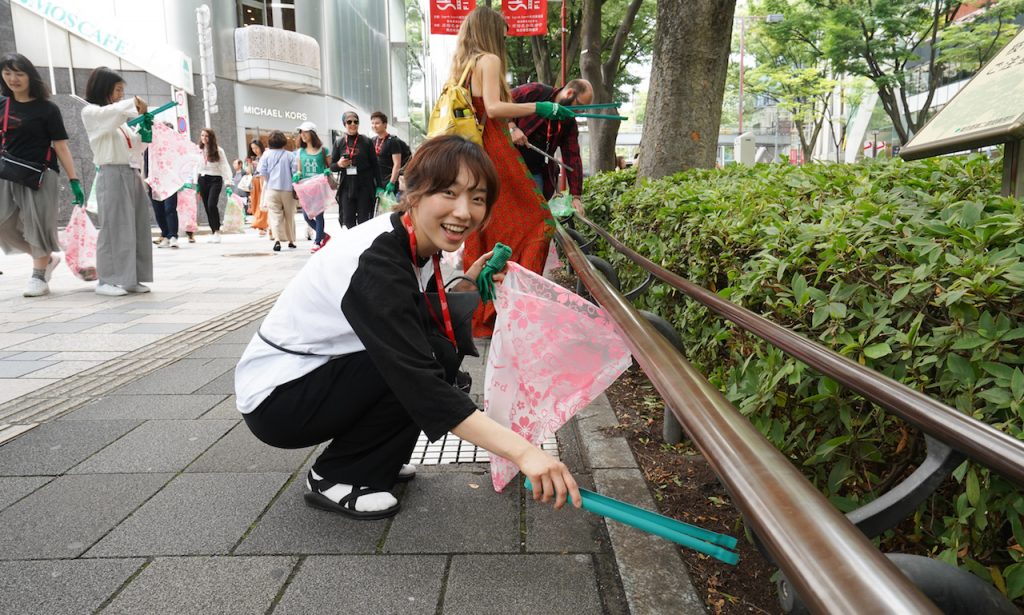
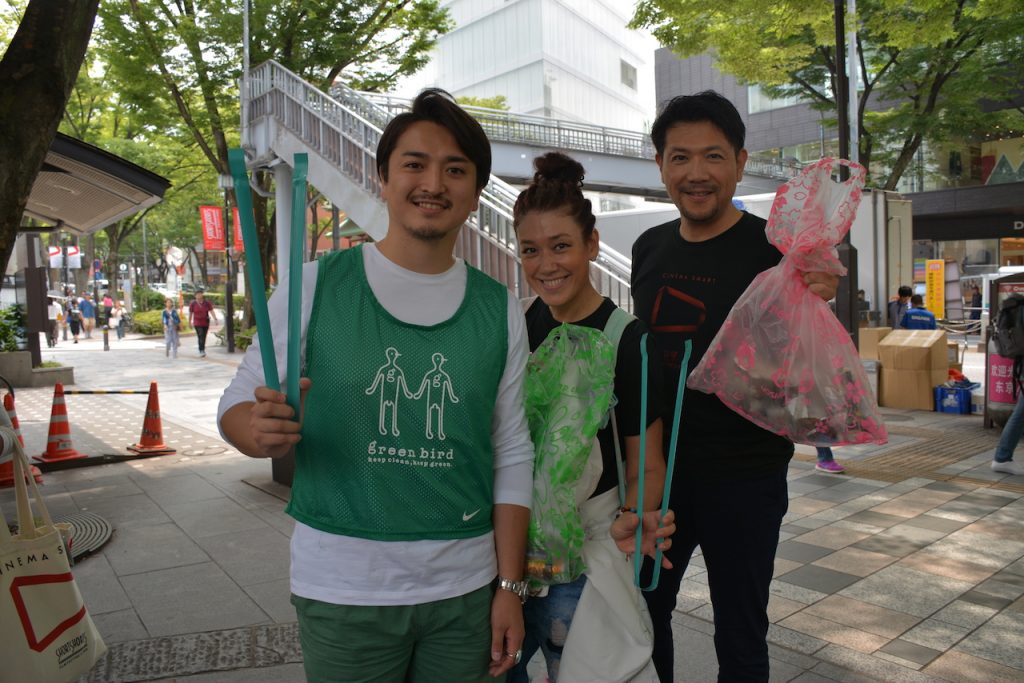
After working hard walking and picking up garbage, we went to worship at Meiji Shrine. In front of the torii gate, each person took a commemorative photo in their own way, and the gravel path leading to the shrine felt somewhat cooler than an asphalt street.
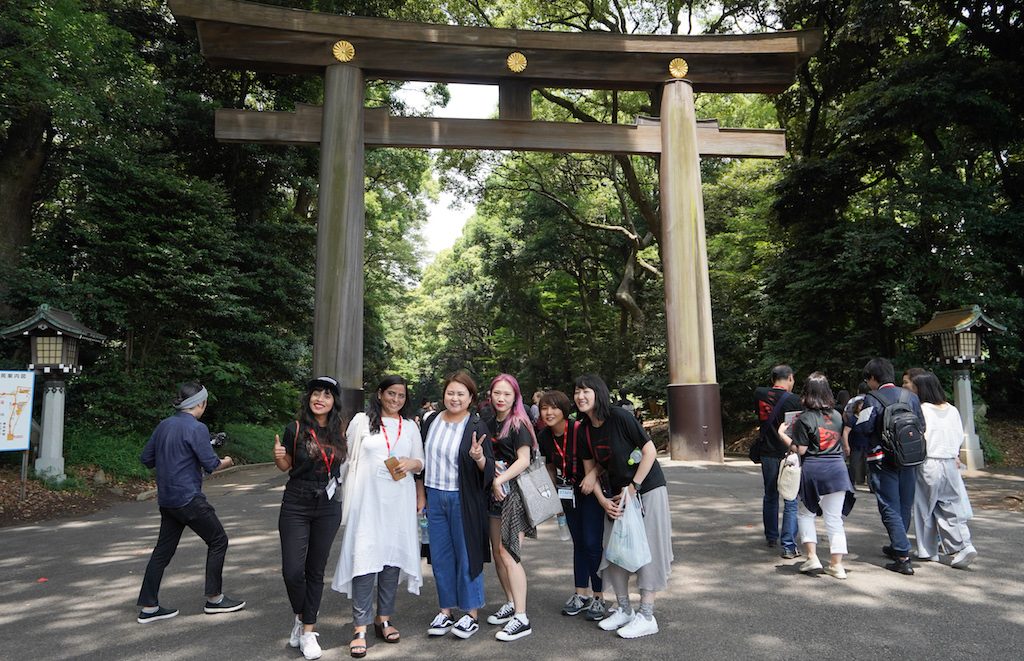
The participants learned the etiquette around washing their hands from Touno, the festival director, and imitated this with serious expressions. When they took off their shoes and went up into the inner shrine to pray, they asked “Is it ok that I’m not wearing socks? Can I go inside?”, and in the tatami room in the inner shrine they asked “What about my feet?”, and their sincere attitudes were impressive. Some people even sat in Zen meditation poses with beautiful posture almost like something from yoga. After praying for the success of the film festival and everyones’ happiness, we were treated to sacred sake and offerings, and when we went outside, I felt a little different, and that my heart was calmer.
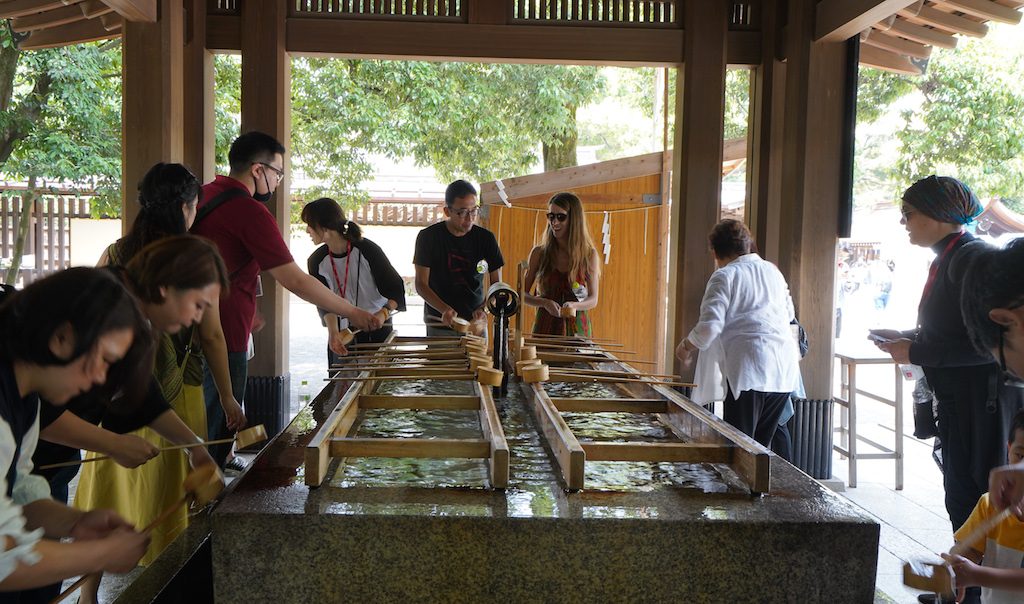
The Japanese, Singaporean, and Indian filmmakers casually pointing at the catalog and saying things like “I produced this movie, so make sure you see it”, “This is my work”, “This is mine” was really wonderful too. I also stuck a decorative Indian bindi an Indian filmmaker had brought with her on my forehead and took a commemorative photo, and in that happy mood we left Meiji Shrine behind.
By working hard together and cleaning the city, and then visiting Meiji Shrine, the people who had gathered from countries with various cultures for the film festival connected with each other. The sweepers activity and the Meiji Shrine visit invigorated both the city and each of our hearts.
Reported by Tamami Inoue